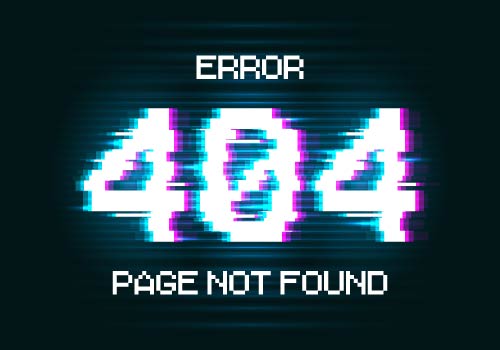September 23, 2024
5 Advanced Email Marketing…
Is your business looking to implement some new B2B email...


Why do they matter to your business? There are a few reasons. If you have broken site links it makes it really hard for Google to properly crawl and index your website – damaging your search engine rankings.
And for site visitors, instead of getting where they want to (a page on your website), all they see is a message saying ‘404 error page not found’. How annoying! When this happens, people get frustrated, hit the back button and you lose them. And they probably won’t come back either.
In fact, 88% of online customers are less likely to return to a website after a bad experience like this. Broken links drive away prospects, damage your reputation and hurt your rankings. The more you have, the worse it gets.
If you’ve ever redesigned your site, deleted pages, images, videos, or changed any page urls, your website probably has some broken links.
The most common causes are:
So, in future, when you do any of these things, always check the links.
When people land on a broken page they leave within seconds. Therefore, because they’ve spent less time on your site this tells search engine algorithms that you’re not providing people with high-quality content or an experience that’s relevant to their search. This results in lower rankings.
And, when you combine this with crawlers finding broken links, it all harms the chances of pages that are working just fine actually ranking well in search results.
You can use Google Search Console and other free tools to find broken links. Once you’ve identified them, you can then fix them. We recommend that you start by examining each link and page to see why it’s broken.
For example, if you’ve deleted old pages or updated your URL structure, old pages will turn into ‘404 not found’ errors when people try to access them. To fix 404 errors, make sure that whenever you move a page you do a 301 redirect. This will send people to the new location, and tell search engines the page has permanently moved.
Did you know that you can also have broken links that are pointing to your site from websites you don’t control? If this is the case, then you should contact the site owner. Tell them what the issue is, where to find it, and ask them to update their site with the correct link.
Don’t ignore broken links, they cause serious harm to your site, your reputation, and your chances of converting prospects. Fix any ones that you have now, and check your site monthly for any new ones.
Fixing site links is just one SEO improvement you can make to your website. Contact Allott and Associates for a free website health check today to understand how your site is performing and how to improve it to gain more competitive advantage. Call us on +44 (0)1423 867264 or email info@allottandassociates.co.uk